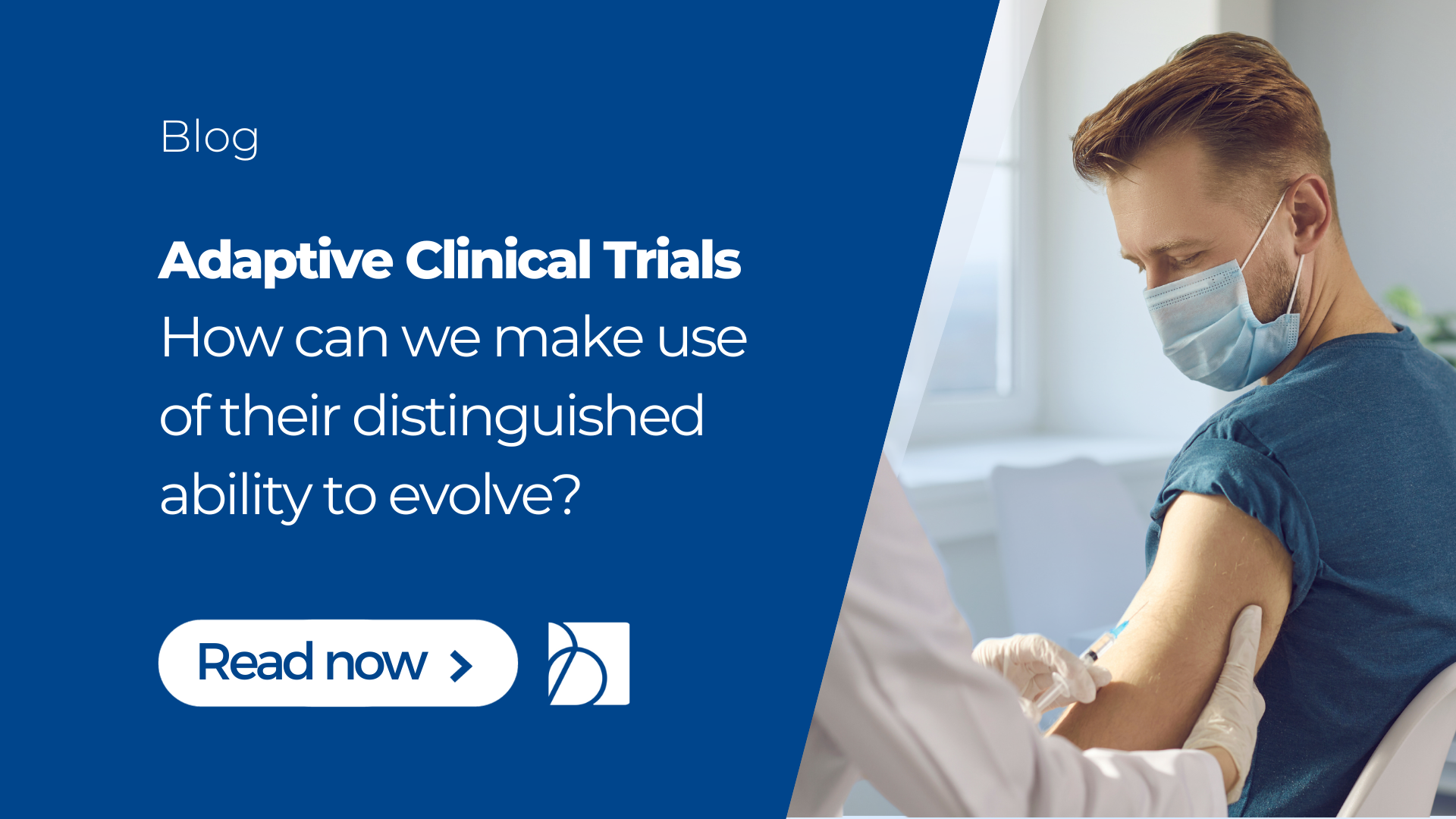Adaptive clinical trials, with their promise of flexibility and efficiency, have captured the attention of the pharmaceutical world. This innovative approach to clinical research, which allows for modifications during the trial’s progression, has emerged as a beacon of hope in streamlining drug development. However, with great potential comes great complexity. Here, Contract Research Organizations (CROs) specializing in adaptive designs come into play, illuminating the path forward.
What are Adaptive Clinical Trials?
Adaptive clinical trials offer a dynamic approach to drug development, allowing modifications based on interim results. At its core, an adaptive clinical trial is distinguished by its ability to evolve. Instead of a static, unchanging plan, researchers can make informed decisions to adjust treatment dosages, reallocate resources from ineffective treatments, or modify participant groupings based on interim results. Such adaptability offers the hope of faster, more efficient trials, potentially bringing life-saving treatments to patients sooner.
A Patient-Centric Paradigm
In adaptive clinical trials lies a deep-rooted commitment to the patient’s well-being. With their rigid designs, traditional trials sometimes exposed participants to treatments long after initial data suggested inefficacy. Adaptive designs challenge this status quo. By continually assessing and adjusting based on real-time data, they minimize the duration patients spend on less effective treatments. This augments the trial’s quality and exemplifies a broader shift in healthcare: a movement towards models where patient welfare and experience are paramount. As we progress, it’s clear that a patient-centric approach isn’t just ethically sound but also potent in enhancing trial efficiency and outcomes.
The Expanding Horizon of Adaptive Clinical Trials
Adaptive clinical trials have emerged as a beacon of innovation in the rapidly evolving medical research landscape. As we venture deeper into precision medicine, individualized treatments, and rapid response therapies, the limitations of traditional clinical trials become more evident. Here, adaptive designs provide a flexible yet rigorous alternative that promises to reshape the future of clinical investigations.
The primary allure of adaptive trials is their dynamic nature. Unlike conventional designs, where protocols are fixed from the outset, adaptive trials allow for pre-planned modifications based on interim results. This inherent flexibility can lead to faster conclusions, potentially reducing the time and resources required. For instance, ineffective treatments can be discontinued earlier, sparing patients from unnecessary exposure and allowing researchers to focus on more promising avenues.
Moreover, adaptive designs are particularly suited for the modern age of data-driven decisions. With advanced data analytics and real-time monitoring tools, researchers can now make informed alterations to the trial, such as dose adjustments or participant reallocation, ensuring the trial remains optimized as it progresses.
However, it’s not just about speed and flexibility. One of the most profound potentials of adaptive trials lies in their ethical dimensions. These trials can minimize patient exposure to suboptimal or potentially harmful treatments by allowing early adjustments. In scenarios where patient well-being is paramount, the ability to pivot based on emerging data becomes invaluable.
As the medical research community grapples with the challenges of a rapidly changing world, adaptive clinical trials offer a promising avenue. Combining flexibility with rigor, these designs unlock the potential for more efficient, ethical, and effective therapeutic solutions. The horizon of clinical investigations is expanding, and adaptive trials are leading the way.
Addressing the Skepticism: Challenges in Adaptive Designs for Clinical Trials
Innovation, while exciting, often comes hand-in-hand with skepticism. Despite numerous advantages, adaptive clinical trials have their share of critics. A primary concern revolves around potential biases. Since the trial design allows for changes based on interim results, there’s a fear that this could inadvertently introduce bias, especially if the modifications are not pre-specified or are based on subjective judgments. Additionally, the dynamic nature of these trials can increase operational complexities, requiring robust data management systems and continuous monitoring. There’s also the challenge of ensuring that all stakeholders, from researchers to regulatory bodies, are on the same page regarding modifications. Addressing these concerns head-on, understanding their roots, and finding solutions are pivotal for the broader acceptance and success of adaptive designs.
Global Perspectives on Adaptive Clinical Trials
While universally relevant, adaptive clinical trials see varied adoption across different regions. Some countries, buoyed by progressive regulatory environments and robust research infrastructures, are at the forefront of this revolution. For instance, regions with a high burden of specific diseases might be more inclined to embrace adaptive designs for quicker therapeutic solutions. Conversely, the uptake might be slower in regions with more conservative regulatory stances. Understanding these global perspectives isn’t just academic. It offers insights into where breakthroughs might emerge next and highlights the mosaic of challenges and opportunities that define the adaptive trials landscape on a global scale.
Harnessing Modern Technology: AI and Beyond
The digital revolution has seeped into every facet of our lives, and clinical trials are no exception. Adaptive trials, with their dynamic nature, are remarkably poised to benefit from technological advances. Machine learning algorithms can predict trends in patient responses, big data analytics can swiftly process vast amounts of interim data, and AI can even suggest potential protocol modifications. The synergy between adaptive trials and technology isn’t just about speeding up processes. It’s about making trials smarter, more responsive, and more attuned to nuances. As technology continues its relentless advance, it promises to be a steadfast ally of adaptive designs, refining and amplifying their advantages.
The Rise of CROs in Adaptive Clinical Designs
Harnessing the potential of adaptive trials isn’t straightforward. The challenges in design, execution, and analysis demand a blend of statistical acumen and clinical expertise. Unsurprisingly, CROs specializing in adaptive designs have risen to prominence. These organizations offer tailored consultation, advanced biostatistical methodologies, real-time data management, and regulatory support, ensuring adaptive trials navigate the turbulent waters of innovation without compromising integrity.
Balancing the Pros & Cons
Engaging a specialized CRO for adaptive trials presents both opportunities and challenges. On the one hand, these CROs bring unparalleled insights into adaptive methodologies, potentially speeding up trial durations and ensuring adherence to the most recent regulatory guidelines. On the other hand, their specialized services might bear a premium cost. Moreover, the intricacies of adaptive designs can pose operational challenges even with expert guidance. There’s also the risk of over-relying on external expertise, which could hamper the growth of in-house capabilities.
In clinical trials, safety is the North Star. While adaptive designs promise innovation, any modifications must never compromise participant safety. This is where specialized CROs, with their deep-rooted expertise, play an indispensable role, ensuring that the trials’ adaptability does not inadvertently introduce risks.
A Symbiotic Future
As the contours of drug development change, adaptive clinical trials represent the frontier of innovation. With their promise come challenges that demand specialized expertise. CROs, with their focus on adaptive designs, are poised not just as service providers but as collaborative partners, shaping the future of clinical research.











